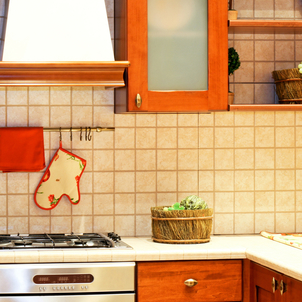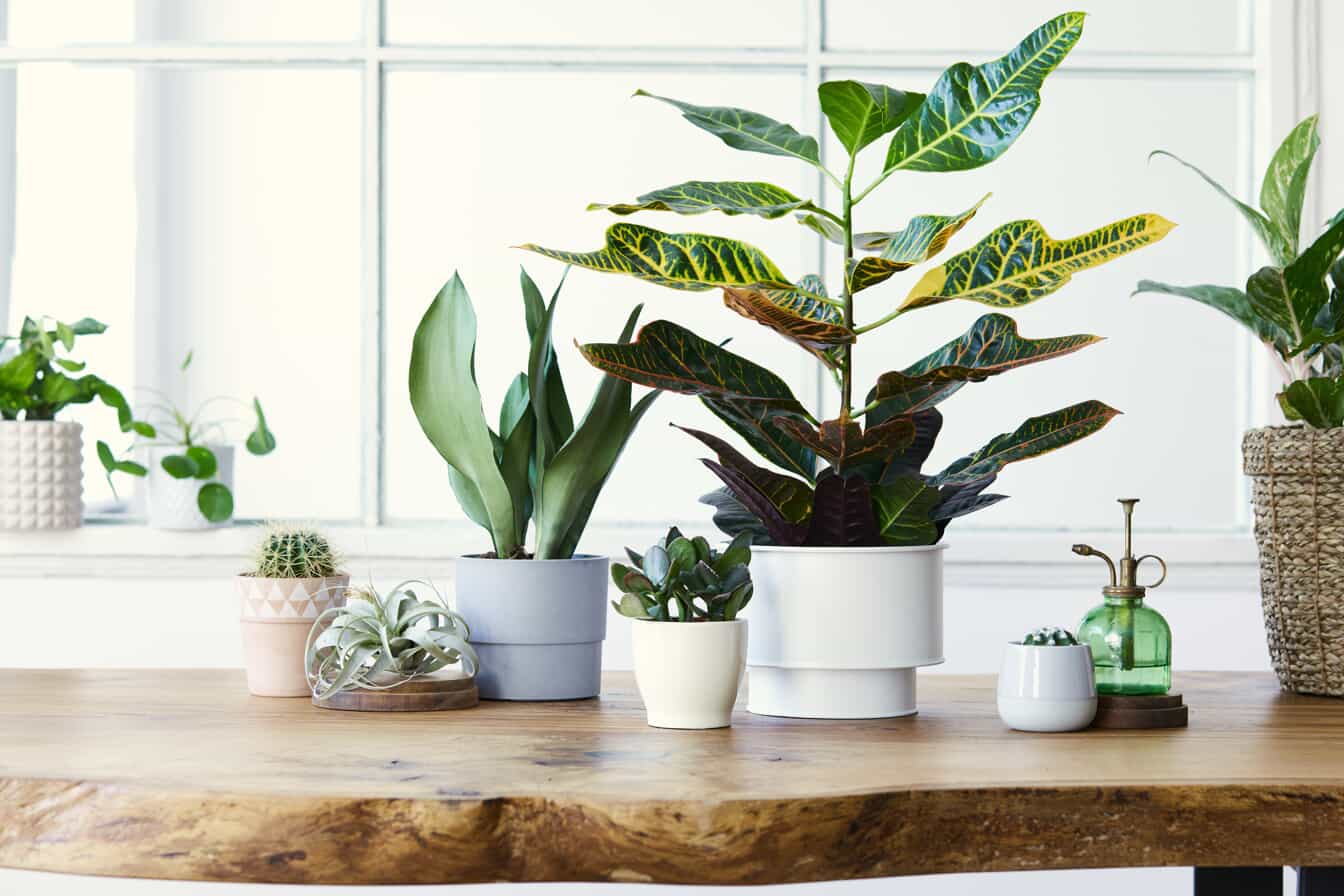How To Clean Your Kitchen Countertops
There’s more to cleaning kitchen countertops than just swiping at the counter with a cloth and cleaning products. To clean your countertops properly—and without damaging the material your counter is made from—you need to know what types of cleaners are safe for your countertops, as well as those you should avoid at all costs.
Here at Merry Maids, we know a thing or two about keeping countertops of all sorts gleaming. So we’ve compiled a list of several of the most common types of kitchen countertops, along with some basic cleaning tips for each.
Note: The majority of our methods are for cleaning your countertops on a daily basis. If you’re looking to do a full-on deep clean of your counters, it’s important you research the materials they’re made from, and understand what cleaning products the manufacturers recommend. The last thing we want is for you to damage a beautiful countertop.
CLEAN GRANITE KITCHEN COUNTERTOPS
To clean granite countertops, all you need is some warm soapy water. Dish soap works perfectly to make the solution. Wipe your countertops clean with your soapy water and a microfiber cloth. You want to rinse your microfiber cloth clean with plain water every now and then so that you’re not just spreading dirty suds around. Once you’ve finished, you need to buff the granite counter with a dry microfiber cloth to get rid of streaks and water stains. It’s important to note that you shouldn’t ever clean a granite countertop with vinegar, as you can compromise the integrity of the stone or ruin the sealant used on the granite.CLEAN LAMINATE KITCHEN COUNTERTOPS
Laminate countertops are fairly common in many homes and apartments. Fortunately, cleaning laminate countertops is pretty easy. Here again, you can use a simple solution of dishwashing soap and water applied with a microfiber cloth, making sure to rinse your cloth with clean water as you go. You want to avoid using any cleaning tools that could scratch the laminate—like scrub brushes or scouring pads—as these counters are not made of the most durable of materials.CLEAN SOAPSTONE COUNTERTOPs
Soapstone countertops are often treated with mineral oil, which helps give them their luster. Scrubbing soapstone with powdered cleaners can remove this shine, meaning you’ll have to give your countertop a mineral treatment more often. To avoid this time-consuming chore, clean soapstone counters using dish soap, warm water and a microfiber cloth. Afterwards, polish the counter with a dry microfiber cloth to get rid of streaks. And, finally, don’t ever clean stone countertops with vinegar, as you can permanently damage the finish.CLEAN QUARTZ COUNTERTOPS
Before cleaning a quartz countertop, make sure it’s actually quartz and not Corian® or Silestone®. Many Corian and Silestone countertops closely resemble quartz. Actual quartz is pretty resilient, so it can handle harsher cleaning products better than many other countertops. However, just because you can use stronger products doesn’t mean you should. Frequent use of chemical cleaners could wear out the surface of your counters more quickly, and you probably want them to last a long time. Quartz is a mineral and is known for its brilliance. Soapy water and a microfiber cloth will work fine for daily cleanings. But to really keep it shining and free of streaks, you can clean quartz using glass cleaner or even ammonia. If you use vinegar to clean in your kitchen, you want to be very careful when using ammonia. These two common household ingredients create a dangerous chemical reaction when combined.CLEAN CORIAN® COUNTERTOPS
Corian countertops come in a variety of colors and textures, some of which resemble quartz. However, while you can polish quartz with window cleaner, you should avoid this method with Corian as it can actually make the surface appear duller. As with many other countertops, warm water mixed with dish soap and a microfiber cloth are all you need to keep Corian clean. Rinse your cloth with clean water often as you work. Once you’re finished, you can use a dry microfiber cloth to make your countertop lustrous again.
CLEAN SILESTONE® COUNTERTOPS
Silestone is an engineered stone that is made up of a large percentage of quartz. You want to be careful with Silestone, though, as many store-bought cleaners can take the shine out of the finish or leave waxy build-up. In most situations, you can simply buff your Silestone countertop clean with a dry microfiber cloth or even some dishwashing liquid and water. However, if you have stains or grease, you’ll need to check online to find the cleaners the manufacturer recommends. If you don’t you could wreak havoc on the surface.CLEAN CONCRETE COUNTERTOPS
Concrete countertops have grown in popularity, as many people like the minimalist and industrial look the material brings to home kitchens. Concrete counters are sealed, so you want to use a neutral cleaner to eliminate any chances that you’ll erode the sealant. Dishwashing liquid, warm water and a microfiber cloth will do the trick nicely. Be sure to frequently rinse your cloth out with clean water as you work so you’re not just wiping dirty water around. After the water has dried, polish the counter with a dry microfiber cloth.
Regardless of which type of counter you have in your kitchen, it’s important to clean as you go when preparing meals. Doing so helps prevent build-up, unsanitary conditions and even stains. And if cleaning your kitchen countertops isn’t your idea of a good time, call your local Merry Maids office. We’ll be happy to take care of those counters for you during regular housekeeping visits.









.2210140805553.jpg)




